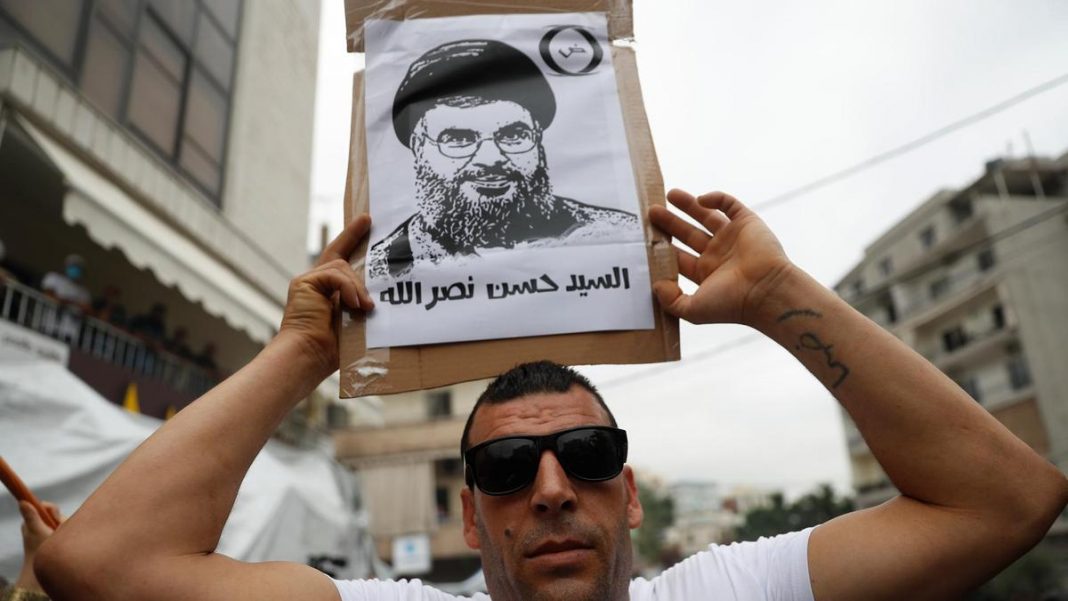Are there extremists that Qatar does not fund?
ذي ناشيونال: هل في العالم كله مجموعة إرهابية لا تمولها قطر؟
The National/July23/2020
الياس بجاني: قطر دولة غنية تستعمل مالها في دعم جماعات الإرهاب الإسلامية الجهادية في العالم
امارة قطر تستغل ثرواتها الكبيرة في تمويل الإرهاب الجهادي السني والشيعي على حد سواء. فهي مع التركي العثماني أردوغان تتولى تمويل وحماية الإخوان المسلمين وفي نفس الوقت تمول حروب أدردوغان في سوريا واليمن وليبيا ومصر والسودان وأفريقيا وفي أماكن أخرى كثيرة. كما أنها ومنذ سنين على علاقة وثيقة وحميمية مع نظام الملالي وتسوّق له في أميركا وأوروبا وتمول حزب الله الإيراني التابع له بملايين الدلارات سنوياً. رزمة من التقارير الموثقة كانت نشرت قبل أيام عرت الإمارة وأميرها وفضحت تموليها لحزب الله ولكل منظمات التطرف الجهادية الفلسطينية. قطر هي شوكة في خاصرة دول الخليج العربي وعلى ارضها أكبر قاعدة عسكرية أميركية وأيضاً قاعدة عسكرية تركية. مطلوب من العالم وقف تمويل قطر لجماعات الإرهاب ووضغ عقوبات عليها لوقف زعزعتها للسلم في الخليج وفي العالم.
Hezbollah and the Muslim Brotherhood, both financed by Doha, have much in common
Qatar’s funding of extremists, in the Arab world and beyond, is no secret to most residents of the Middle East.
Yet, in the past week, new details of Doha’s murky dealings abroad have emerged. According to German newspaper Die Zeit, Doha has been funding Hezbollah and its activities. The Lebanese militant group was created by Iran in the 1980s as a proxy and it is allied with the Syrian regime.
The information was leaked by a whistleblower only identified as “Jason”, who worked as a contractor for Doha. He said he had been promised €750,000 (Dh3.1 million) from Qatar for the sole purpose of hiding evidence he had gathered of the country’s support for Hezbollah. The deal fell through and the contractor went public with the dossier.
This revelation proves that Qatar continues to pursue a strategy of destabilising the region, funding extremists who undermine peace in their own countries and beyond.
This scheme seems to have, in fact, expanded. Last year, The Qatar Papers, a book authored by two French journalists, uncovered Qatar’s financing of the Muslim Brotherhood in Europe.
The organisation, which is outlawed in several Arab countries, was granted millions of dollars. The money funnelled to Hezbollah went through non-profits such as the Qatar Charity, much in the same fashion that Doha finances the Muslim Brotherhood in Europe.
It may seem baffling that Doha would support two extremist groups with differing ideologies but in reality Hezbollah and the brotherhood have much in common.
They both have a history of destabilising Middle Eastern countries and thriving on sectarian divisions. They share a common strategy of using religion to gain political power and popular support.
These groups also operate within European borders, pressuring their respective communities abroad into conforming to their dogma.
This is especially dangerous at a time when it is increasingly difficult for people to immigrate and escape the actions of extremists like these groups at home.
This scandal has surfaced at a pivotal time. In early 2019, when these negotiations allegedly took place, Europe tolerated Hezbollah’s non-military activities, differentiating the group’s political party from its paramilitary arm. The goal of this superficial distinction was to avoid alienating Lebanon’s then unity government.
Today, the new Cabinet is aligned with Hezbollah. The group is also allied with Lebanese President Michel Aoun and has its own representatives in parliament.
Over the past year, the US has increased sanctions on Iran and its allies. Some European countries have followed suit.
In March 2019, the UK designated Hezbollah entirely as a terrorist organisation and in April 2020 Germany banned the group completely, no longer seeing a false differentiation between its political and paramilitary branches.
It may seem baffling that Doha would support two extremist groups with differing ideologies but in reality Hezbollah and the brotherhood have much in common
Hezbollah has terrorised protesters asking for a better life and hindered Lebanese sovereignty.
It has also isolated Lebanon from the international community and its traditional allies in the Gulf, preventing Beirut from obtaining financial help at a time of economic collapse.
Doha’s support for extremism comes as no surprise to its neighbours. Since 2017, Egypt, Bahrain, the UAE and Saudi Arabia have cut ties with Doha to pressure it into halting its financing of foreign extremists, among other issues.
The Arab Quartet has for years warned the world about Doha’s nefarious dealings. As evidence of Qatar’s support for Iran-backed groups continues to mount, it is high time Doha faced international scrutiny for its actions.






















